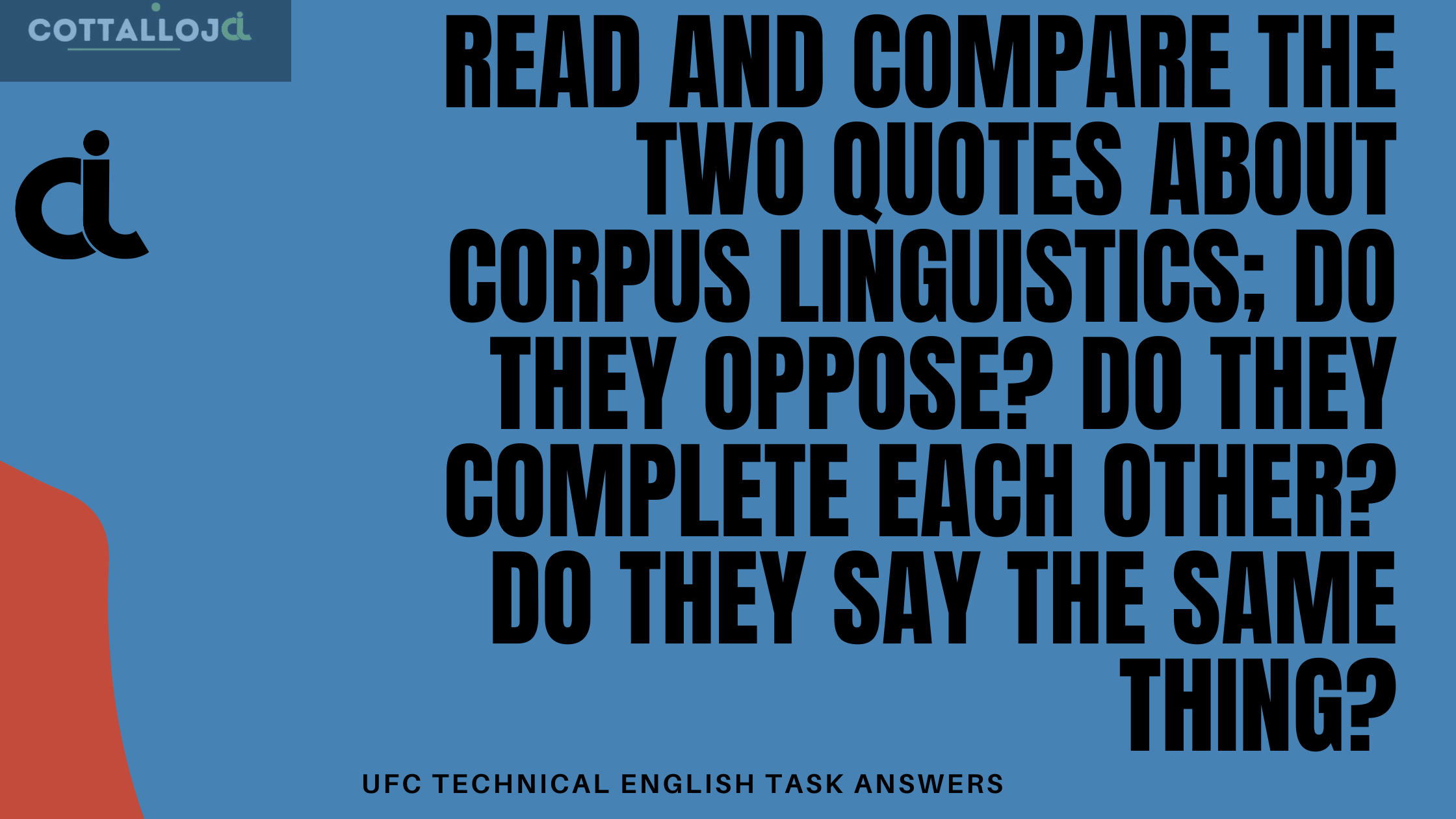READ and COMPARE the two quotes about Corpus Linguistics; Do they oppose? Do they complete each other? Do they say the same thing?
Context
“Corpus Linguistics in the Classroom”
"In the context of the classroom the methodology of corpus linguistics is congenial for students of all levels because it is a 'bottoms-up' study of the language requiring very little learned expertise to start with. Even the students that come to linguistic enquiry without a theoretical apparatus learn very quickly to advance their hypotheses on the basis of their observations rather than received knowledge, and test them against the evidence provided by the corpus."
– Elena Tognini-Bonelli, Corpus Linguistics at Work. John Benjamins,
2001
"To make good use of corpus resources a teacher needs a modest orientation to the routines involved in retrieving information from the corpus, and—most importantly—training and experience in how to evaluate that information."
– John McHardy Sinclair, How to Use Corpora in Language Teaching, John Benjamins, 2004”
Answer
The two quotes provide complementary perspectives on Corpus Linguistics in the classroom.
In the first quote by Elena Tognini-Bonelli, the focus is on the accessibility and user-friendly nature of corpus linguistics for students. It emphasizes that students at all levels can engage with corpus linguistics as a "bottoms-up" study of language, and even those without a theoretical background can quickly learn to formulate hypotheses based on their observations.
In the second quote by John McHardy Sinclair, the emphasis is on the teacher's role and the importance of orientation and training in effectively using corpus resources. It acknowledges that teachers need guidance on retrieving information from the corpus and stresses the significance of training and experience in evaluating the obtained information.
Together, these quotes suggest that corpus linguistics can be approachable for students, but effective utilization in the classroom requires both student engagement and teacher proficiency. The quotes don't oppose each other; instead, they offer a well-rounded view, with one focusing on the learner's perspective and the other on the teacher's role and expertise.






